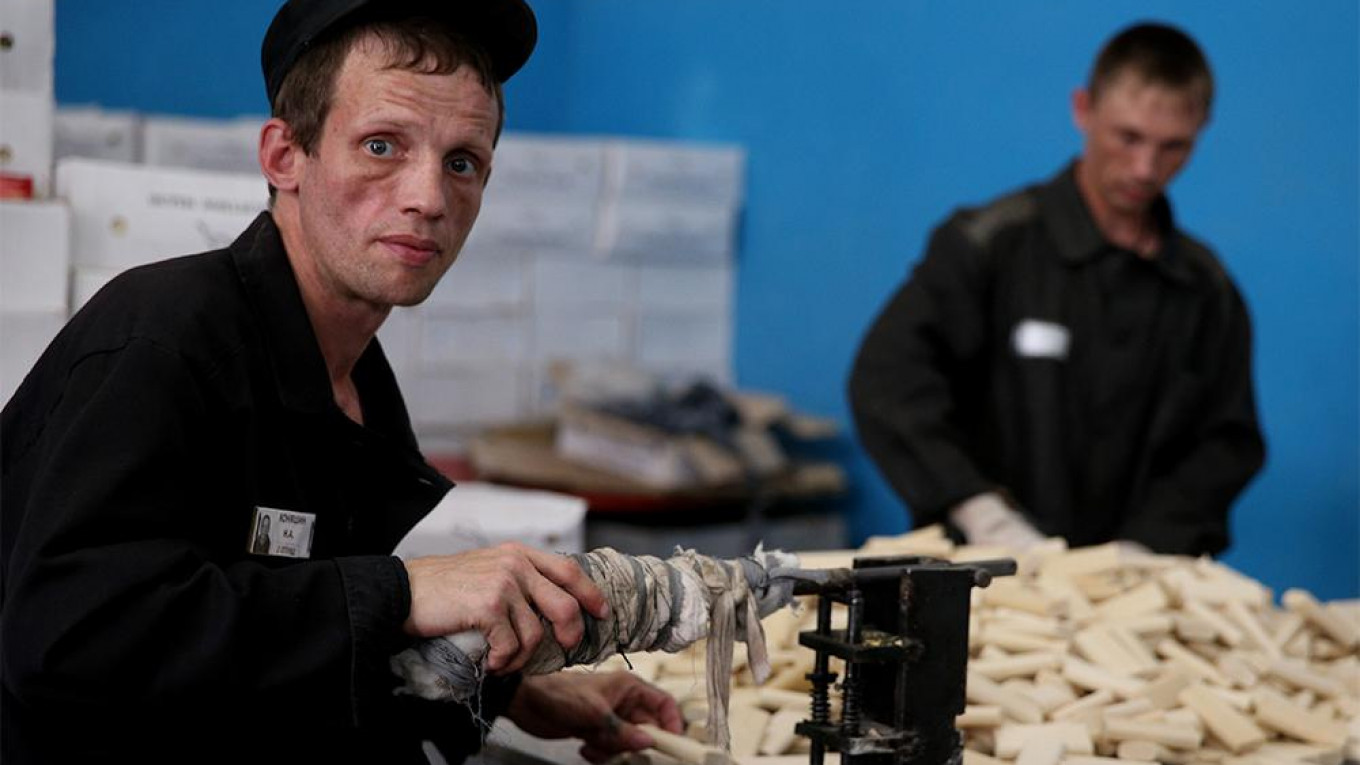Prisoners in Russia endure inhumane conditions, Amnesty International said this week, comparing their treatment to that during Soviet times.
In its report released Wednesday titled “Prisoner transportation in Russia: Traveling into the unknown,” the international human rights advocates compared conditions on the prison convoys to the Gulag era, and appealed to Russian authorities to improve standards.
At a press conference in Moscow, Amnesty’s acting director in Russia Ivan Kondratenko was cited by the RBC news outlet as saying: "Prison vans and train cars do not meet universal standards. We recommend cutting in half the number of prisoners in rail cars, where there's no air."
Amnesty also urged the Russian government to not send prisoners away from their home regions so that they could remain closer to their families.
“Convicted prisoners are packed into tiny spaces on trains with no ventilation, no natural light, little water, and infrequent access to toilets,” Denis Krovosheyev, deputy director of Amnesty for Europe and Central Asia, said in comments alongside the report’s release.
“At the end of journeys that can last well over a month, they finally arrive at their destination, thousands of miles away from their families.”
Krovosheyev said at the presentation in Moscow that the Russian Federal Penitentiary Service had already replied to the human rights group, promising to improve the train cars.
A Message from The Moscow Times:
Dear readers,
We are facing unprecedented challenges. Russia's Prosecutor General's Office has designated The Moscow Times as an "undesirable" organization, criminalizing our work and putting our staff at risk of prosecution. This follows our earlier unjust labeling as a "foreign agent."
These actions are direct attempts to silence independent journalism in Russia. The authorities claim our work "discredits the decisions of the Russian leadership." We see things differently: we strive to provide accurate, unbiased reporting on Russia.
We, the journalists of The Moscow Times, refuse to be silenced. But to continue our work, we need your help.
Your support, no matter how small, makes a world of difference. If you can, please support us monthly starting from just $2. It's quick to set up, and every contribution makes a significant impact.
By supporting The Moscow Times, you're defending open, independent journalism in the face of repression. Thank you for standing with us.
Remind me later.






